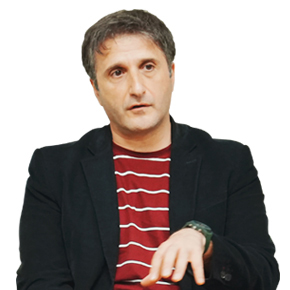In the early 90s, like many of my generation, I was captivated by Joseph Brodsky. To this day, I still consider him the greatest poet, and I dream that one day I will have time to be alone with that thick volume of his poems – the one I glance at every day as I pass by my bookshelf.
In the early 90s, of course, I could never have imagined that 25 years later in Yerevan I would meet one of Brodsky’s friends.
In May 2017, I received a call from my good friend, Erikas Petrikas, the Lithuanian Ambassador to Armenia. He told me he had invited the renowned Lithuanian poet and translator Tomas Venclova to visit Armenia in June and suggested that I host a meeting with him at the Mirzoyan Library. Of course, I agreed. How could anyone turn down the chance to meet a man who had been friends with Nobel Prize laureates Joseph Brodsky and Czesław Miłosz?
During the meeting, Venclova shared the story behind “Lithuanian Nocturne”,the poem Brodsky had dedicated to him. He explained that Brodsky had begun writing it back in the Soviet Union, then set it aside for some time. It wasn’t until after his move to the United States that he returned to the poem and completed it.
“He called me quite often to clarify some details. In the poem, he commemorates Lithuanian pilots Darius and Girėnas, who flew from USA to Lithuania in 1933 and crashed in Germany. In particular, Brodsky asked if they were flying a monoplane of a biplane. When he finished the poem, he called me and read it out to me. Of course, I was very pleased that Brodsky dedicated such a poem to me,” he said.
Tomas Venclova and Tom Stoppard
And back in the early 2000s, I missed the chance to meet another Tom - one indirectly connected to Brodsky. I was in Brussels, attending the annual Brussels Forum of the German Marshall Fund of the United States. During one of the breaks, I noticed the Belarusian opposition delegates engaged in conversation with a man of respectable age. Suddenly I realized that it was the renowned English playwright, Tom Stoppard.
Stoppard became famous in 1966, with the publication of his play “Rosencrantz and Guildenstern Are Dead”. A few years later, Brodsky translated it.
“I met Brodsky once, at a reception organized by his publisher. He said he had translated my play. I was very flattered and confused. It was a few weeks after he received the Nobel Prize,” Stoppard later recalled.
For a moment I decided to approach him and introduce myself, but I hesitated. I watched from a distance as he spoke with the Belarusian delegates. I decided I would approach him during the next break, but I didn’t see Tom Stoppard in the hall anymore.
Ara Tadevosyan is the Director of Mediamax.

















